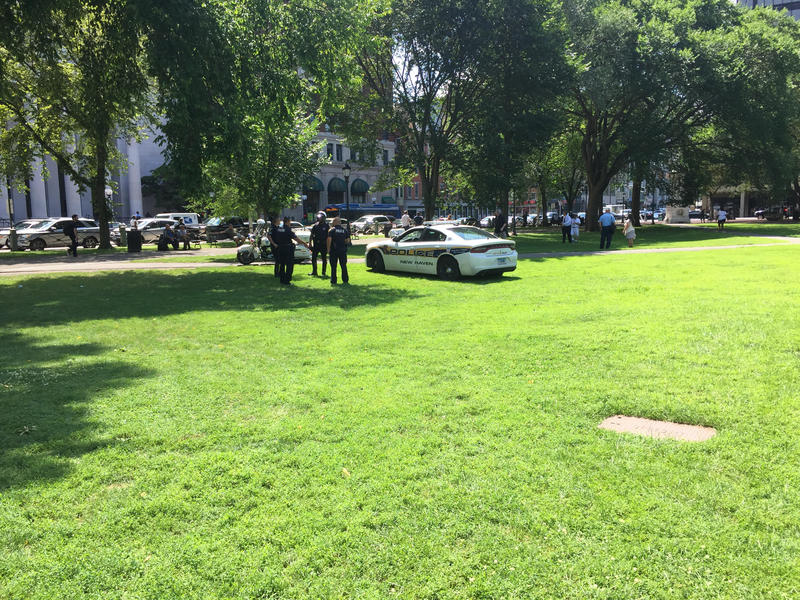New Haven City Officials Call For State Help In Overdose Crisis

Emergency personnel respond to the overdose crisis on New Haven Green. Photo by Diane Orson for Connecticut Public Radio
Over 100 people are now known have overdosed on the New Haven Green since Tuesday night, apparently as a result of using part of a bad batch of the synthetic cannabinoid K2. Officials say that the man-made drug and this particular batch was designed to have a more potent effect on the people who took it—so they could become addicted.
Dr. Robert Bruce recommended that people avoid synthetic marijuana. He said it can do more permanent damage than the temporary collapses witnessed on the green.
“We’ve seen them cause paranoia, psychosis, and things that can really negatively impact the brain,” said Bruce, the chief of medicine for the New Haven area’s Cornell Scott-Hill Health Center. “There’s some things that you can break that nobody can fix. We would encourage people that it’s not worth the risk.”
Bruce’s crew has been working on the ground in the wake of the overdoses—setting up a triage unit at the Green. “If people had used and they had fallen down, we could get them up, get them over to a cot, monitor them medically, make sure that they were fine–that they were safe–and then after the use is over in the 30-to-40 minute timeframe, they recover, get up, and go on with their day,” he explained.
The team monitored patients’ respiratory functions and oxygen saturation levels in lieu of administering Narcan. Bruce said while it doesn’t hurt to use Narcan if you suspect an overdose, it just doesn’t work in a non-opioid overdose.
Toni Harp is New Haven’s mayor. She said she’s asked the state’s Department of Mental Health and Addiction Services to help the city combat the K2 problem by making at least two recovery specialists available to work the Green for 12-15 hours a day.
“It’s important that we just don’t give people medicine and expect them to take care of it on their own,” she said.
Harp said that the state has promised to at least provide the city with one “street psychiatrist” who can identify people having difficulty with addiction and can then prescribe medication to address the issue.
